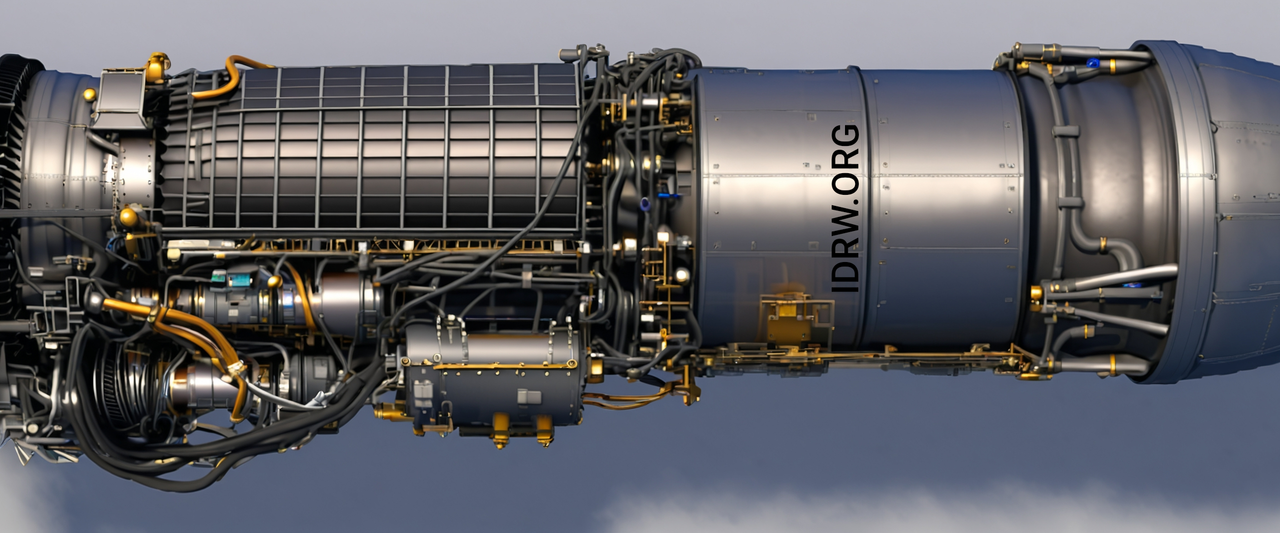SOURCE: RAUNAK KUNDE / NEWS BEAT / IDRW.ORG


General Electric (GE) Aerospace was caught by surprise when the Indian Air Force (IAF) and Hindustan Aeronautics Limited (HAL) placed an order for an additional 83 Tejas Mk1A fighter jets in 2021, necessitating the delivery of nearly 99 more F404-IN20 engines. The F404-IN20 is a variant of the F404 engine developed specifically for the Tejas Mk1 program, providing enhanced thrust and optimized performance for single-engine operations.
The F404-IN20 engine, producing 19,000 pounds of thrust (or 84kN of wet thrust), was custom-designed by GE Aerospace for the Tejas Mk1 program to meet India’s unique operational requirements. It delivers the highest wet thrust among all F404 variants, specifically catering to the demands of India’s indigenous fighter program. Initially, GE Aerospace provided around 75 F404 engines to India over the last two decades, which was seen as a slow pace of supply for the company.
GE officials who spoke to idrw.org on the condition of anonymity revealed that after the initial order for 40 Tejas Mk1 jets, it seemed unlikely that India would procure more Tejas Mk1 variants. By 2013, HAL had already placed orders for the more advanced F414 engine to power the forthcoming Tejas Mk2 fighter jets. GE Aerospace had secured the contract for the F414-INS6 engines after defeating the Eurojet consortium in 2010, a clear indicator that India’s focus had shifted to the development of the more capable Tejas Mk2 platform.
Given this context, GE Aerospace was not expecting additional orders for the India-specific F404 engines. With no major orders on the horizon, the company was not keen on maintaining its supply chain for a highly specialized engine that would not be ordered in large quantities.
The situation changed dramatically in 2021 when the IAF, in collaboration with HAL, placed an order for 83 more Tejas Mk1A platforms, taking the total to 123 aircraft. The decision was unexpected for GE, especially since the focus had long been on the Tejas Mk2 program, which is powered by the F414 engine.
The unexpected order presented GE with a significant supply chain challenge. As the company had scaled back its production capabilities for the F404 engine, which was custom-built for India, it required time to ramp up manufacturing. The COVID-19 pandemic exacerbated the situation, further disrupting global supply chains and forcing GE to identify new partners to restart the production process.
Adding to the complexity is the fact that the F404-IN20 engine used in the Indian Tejas Mk1A is a highly customized variant. While other countries like South Korea and Sweden also use the F404 engine for their platforms, their versions have lower thrust output and are locally manufactured under different agreements, which limits GE’s direct involvement in their entire supply chains. This further reduced the company’s ability to quickly respond to India’s sudden demand for additional engines.
Now that India is planning to procure an additional 97 Tejas Mk1A jets beyond the initial 83 ordered in 2021, GE Aerospace is ramping up its production plans. The company aims to deliver 20 engines per year starting in 2026, with the possibility of increasing production further by 2027. This is critical to meet the requirements of the growing Tejas Mk1A fleet and ensure the aircraft’s operational availability.
Despite the challenges, GE is committed to fulfilling India’s orders and ensuring that the Tejas Mk1A program remains on track. The F404-IN20 engine will continue to be a critical component of India’s light combat aircraft fleet until the Tejas Mk2 enters full production.
NOTE : Article cannot be reproduced without written permission of idrw.org in any form even for YouTube Videos to avoid Copy right strikes. Websites doing illegal reproductions will get DMCA and Legal Notices.